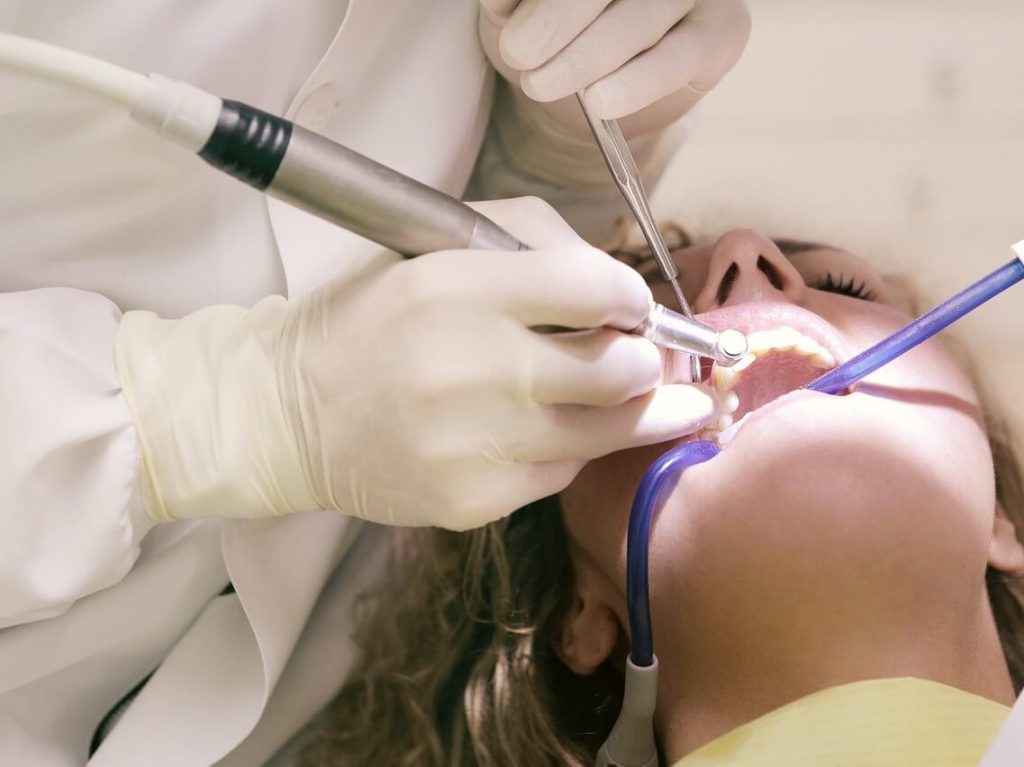Did you know that poor dental care and oral hygiene can cause cancer, diabetes, heart disease, cavities, and gum disease?
A study has found that bacteria in the mouth easily enter the bloodstream and stick to platelets as we swallow saliva.
These bacteria then cause blood clots, interrupting blood flow to the heart, prompting cardiac arrest and other diseases. Therefore, it is essential to maintain dental and oral health to improve your general health and well-being.
This article will highlight everything you need to know about dental and oral care and give you tips on maintaining and improving oral hygiene for healthy teeth, gums, and general health.
Types of Dental Care and Oral Diseases
Since your teeth and mouth are used for many things, anything can go wrong, more so if you don’t give them the best treat and care. Let’s look at some types of dental and oral illnesses you can get due to poor hygiene.
Cavities
Cavities are common, and they occur when acidic or sugary food remains and bacteria form coats on your teeth. These harsh elements will wash away the tooth enamel, causing dentin, connective tissue, or Permanent tooth damage.
Gum Disease (Gingivitis)
This is a gum inflammation disease. It is caused by plaques forming up on your teeth due to poor flossing and brushing habit. The effects of gingivitis are swollen gums, periodontitis, and other severe infection.
Periodontitis
Periodontitis comes as a result of infected gums. This infection spreads rapidly to your bones and jaw, causing inflammation throughout the body.
Cracked or Broken Teeth
You can get broken or cracked teeth from injuries, chewing hard food or bones, and grinding your teeth at night. This can cause you pain, and a visit to the dentist can save your tooth.
Sensitive Teeth
This disease is also known as “dentin hypersensitivity.” It causes a sharp, painful sting or discomfort after having cold or hot foods or beverages. You can also feel the pain after having a root canal or a filling.
Oral Cancer
This is the most lethal dental problem one can encounter. It is considered to be neck and head cancer.
This cancer claims the highest casualties than other cancers because it doesn’t present any pain or primary symptoms.
It affects the gums, tongue, lips, cheek, and floor of the mouth.
A Must-read: 6 Healthy Diet Facts That You Must Know
Dental Care: Ways to Keep Your Teeth Healthy
Love your teeth just as you love other parts of your body. Loving your teeth will help you achieve healthy teeth and prevent them from getting infections and other dental problems.
Here are crucial steps that you can follow to achieve healthy teeth.
Don’t Go To Bed Without Brushing Your Teeth
Ensure that you brush at least two times a day and at most three times. More so, before you go to bed. This will help eliminate germs and plaques that build up during the day.
Brush Properly
Spend at least two minutes on your teeth. Use the right toothbrush to move in gentle circular motions to eliminate plaques.
Don’t Neglect Your Tongue.
Plaque residues in your gums and tongue are likely to harden, leading to calculus buildup, foul mouth odor, gingivitis, and other oral health problems. Gently brush your tongue every time you brush your teeth.
Use Fluoride Toothpaste.
Fluoride toothpaste is a leading defense against tooth decay and sensitive teeth. It strengthens, whitens, and protects your gums from bacterial infections.
No matter the toothpaste you choose to use, ensure it contains fluoride.
Treat Flossing As Important As Brushing.
Flossing is just as important as brushing. It helps get into tiny spaces in your teeth and effectively removes small pieces of food stuck in between your teeth.
It also helps stimulate the gums, lower inflammation and reduce plaques.
Consider Mouthwash for Dental Care
Mouthwash will help your teeth, mouth, tongue, and gums by reducing the amount of acid in the mouth, re-mineralizing the teeth, and cleaning hard-to-brush areas in and around the gums.
Mouthwash is also a good option for children and aged people where brushing and flossing may not be ideal.
Drink More Water For Dental Care
Water is life, both to the body and your teeth. It is the best liquid ever for maintaining oral health.
Ensure you drink water after every meal to wash out some of the remaining food and loosen the sticky and acidic foods before your brush.
Limit Sugary and Acidic Foods
When sugar settles in your mouth, it converts into acid. This acid will then erode the enamel of your teeth, causing cavities and sensitivity.
Always be mindful of the amount of sugary and acidic products you take to avoid wearing down tooth enamel.
See Your Dentist At Least Twice A Year
Ensure you develop a healthy relationship with your dentist. Please visit them regularly, at least twice per year.
Not only will they extract or clean your tooth, but they will also be able to spot potential issues and offer treatment solutions.
Dental Care and Treatment of Oral Problems
As seen above, it is advised that you should visit your dentist at least twice a year and anytime you show signs of infections, gum disease, or any other tooth problems.
Below are ways that you can treat dental problems.
Cleanings
Cleaning will help eliminate bacteria and plaques and also help remove tartar that might have escaped while brushing and flossing.
A dental hygienist performs dental cleaning. Cleaning will also help teeth scaling and root planing.
Fluoride Treatments
After the cleaning, your doctor may apply a fluoride treatment to fight off cavities. The treatment will also strengthen the enamel of your teeth and make them resistant to acidic foods and bacteria.
Antibiotics
There is mouthwash liquid, oral tablets, gel, or capsules that contain strong antibiotics that help fight gum infection and prevent tooth abscess that has spread to your jaw or other teeth.
These antibiotics can also be applied to the teeth during gum surgical procedures to help get rid of the infection.
Fillings, Crowns, and Sealants
A filling will repair the cavity, crack, and hole in the tooth. Your dentist will use a drill to remove the damaged area of the tooth and then fill the void with amalgam or composite.
A crown helps fill up portions of broken teeth due to an injury.
There are two types of crown filling; a regular crown that fits over a natural tooth and an implant crown that fits over an implant. These crowns fill in the gap where your natural tooth appears.
On the other hand, sealants are placed on the back teeth, or molars, to help prevent cavities. They are thin and protective coatings, easy to apply, and completely painless.
Root Canal
A root canal is done when tooth decay reaches the tooth to the nerve. The nerve is removed and replaced with amalgam or a biocompatible material such as gutta-percha and adhesive cement during this procedure.
Tooth Extraction
Tooth extraction is a common way of relieving the pain caused by toothache or cavities. When a dentist notices a tooth cavity and can’t save it with a root canal or other surgery, he will advise for an extraction.
This procedure is also recommended if your wisdom teeth, or third molars, are impacted.
Bone and Soft Tissue Grafting
This procedure is recommended when gum disease damages the bone surrounding the root of your tooth.
The dentist replaces the damaged bone with a graft from your bone, a synthetic bone, or a donated bone.
On the other hand, soft tissue grafting is used to treat receding gums by removing small pieces of tissue from your mouth or a donor and attaching it to the missing areas of your gums.
Also Read: Can Hormones Make You Gain Weight?
What You Should Know About Your Child’s Dental Care
It is recommended that children start seeing a dentist by their first birthday. They are highly vulnerable to dental cavities and tooth decay, particularly those who bottle feed.
The rot is caused by too much sugar left on the teeth after bottle feeding.
To avoid baby bottle tooth decay, you should only bottle feed during meal times, wean your child off of a bottle when they turn one year old, and introduce brushing using a soft baby toothbrush once their baby teeth start to come in.
What Men Need to Know About Dental Care
It has been noted that men are less likely to take good care of their teeth and gums than women.
They are less likely to floss regularly, brush twice daily, and seek preventive dental care. As a result, they get oral and throat cancer.
Therefore, men ought to recognize the consequences of poor oral health and take action early in life.
What Women Need to Know About Dental Care
Women stand out when it comes to oral hygiene and dental healthcare. Their changing hormones at various stages of their lives put them at risk of acquiring several oral health issues.
For instance, when they begin their menstruation, they may experience swollen gums or mouth sores during that period.
During pregnancies, hormones tend to increase, thus affecting the amount of saliva produced. This causes morning sickness, which later results in tooth decay.
On the other hand, during menopause, women release a low amount of estrogen, which later increases the risk of gum disease. Other women can also suffer from burning mouth syndrome (BMS) during menopause.
The Bottom Line
Poor dental care and oral hygiene can contribute to issues that will affect your speech, self-esteem, comfort, nutrition, and overall quality of life.
Most of these dental problems occur without you knowing as they don’t have prior signs.
Therefore, seeing a dentist regularly and staying on top of your daily oral care will help prevent cavities and reduce your risk of severe gum disease and tooth loss.


